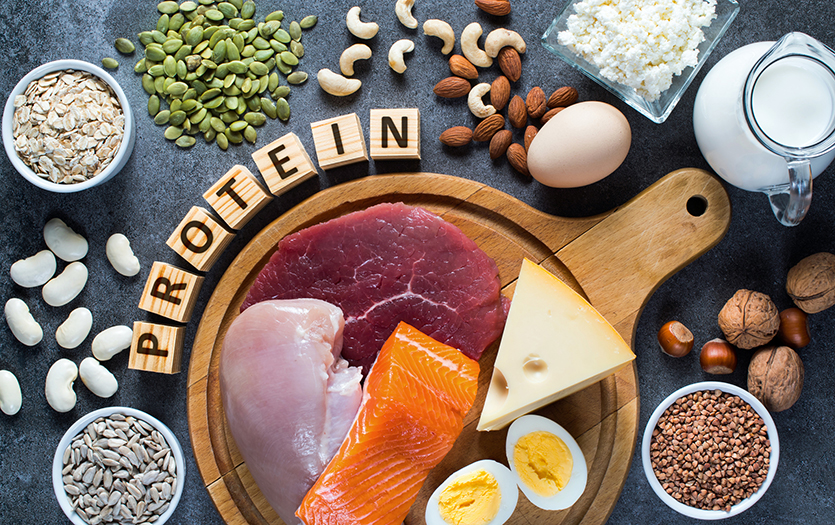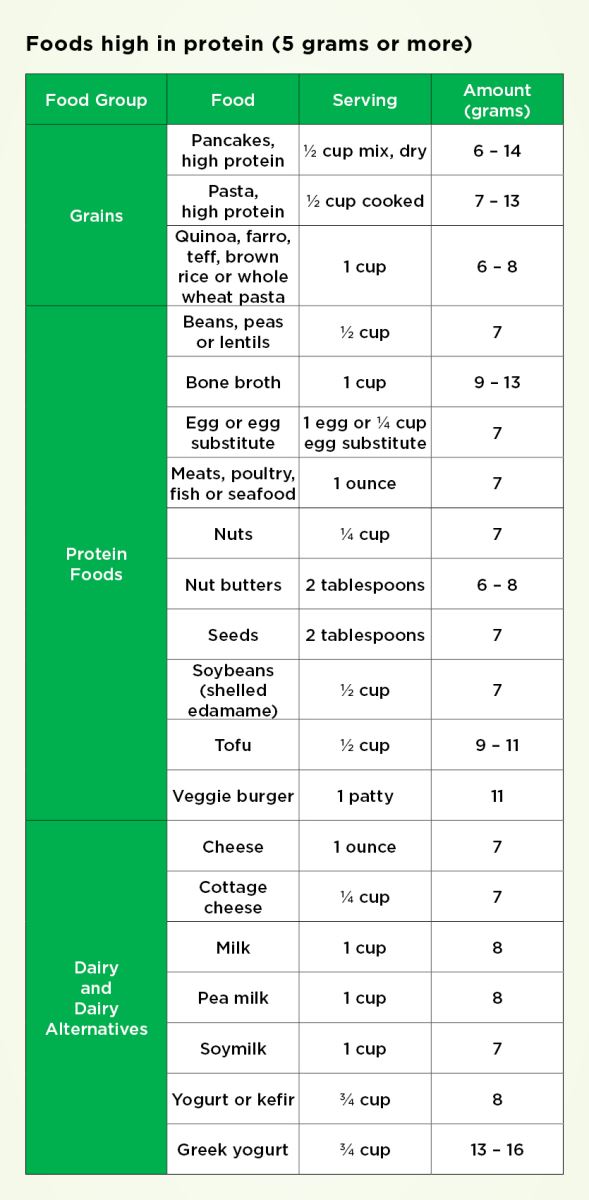
This post was written by Megan Alberding, RD, LD, registered dietitian, Parkview Health.
Getting enough protein in your diet is important to a healthy body. While many of our foods contain protein, there are also a plethora of protein powders on the market to make adding protein into your diet easy and convenient. So, you may be wondering which source of protein is better. Let’s dig in!
What is protein?
Protein is a nutrient that can come from plant-based or animal-based sources, such as meat, eggs, beans, nuts, lentils, tofu, and many others. The body utilizes protein from food to make and repair cells. Protein also helps with many other functions including fighting infections and transporting fats, vitamins, minerals and oxygen around the body. That’s why it’s important to get adequate amounts of protein in your diet.
How much protein do you need?
The amount of protein you need depends on several factors including age, sex, health status and activity level. If you are pregnant/breastfeeding or are very physically active, for example, your body may require more protein. Research shows that older adults above the age of 70 are more likely to be at risk for low protein intake.
The Recommended Dietary Allowance (RDA) of protein for a healthy adult with minimal physical activity is currently 0.8 grams of protein per kilogram of body weight per day. For endurance athletes, the RDA increases to 1.2–1.4 grams per kilogram of body weight and to 1.2–1.7 grams per kilogram of body weight for strength and power athletes.
What is protein powder?
Protein powders come in a variety of flavors and can be made by extracting protein from animal-based products, such as cow’s milk and eggs, or plant-based sources, such as peas, rice and soy. Most protein powders provide around 15-30 grams of protein per serving. To compare, one egg or a handful of nuts provides about 7 grams of protein per serving. A piece of chicken or fish the size of a deck of cards (3 oz.) provides about 20 grams.
Should you invest in protein powder?
For most healthy adults, a protein powder may be convenient but is not necessary. Unless you are an older adult with a limited appetite, have a restricted diet or are a professional athlete, you can likely get an adequate amount of protein from foods you already eat or can adjust your food intake to get the protein you need. Protein from food is often cheaper, less risky and naturally includes added benefits of fiber, vitamins and minerals that may not be found in all protein powders.
Tips for consuming protein
- Be aware of what’s coming with your protein. When choosing food sources of protein, keep in mind that foods rich in protein may also be high in saturated fat. High intakes of saturated fat may increase risk for heart disease. Try to limit protein foods that are high in saturated fats such as fried meats/fish, hot dogs, sausage, bacon and whole-fat dairy products.
- Consider your diet. If you follow a vegetarian/vegan lifestyle, you may find getting adequate amounts of protein difficult. While there are plant-based protein powders on the market, you can also try eating more plant-based proteins including legumes, nuts and nut butters, soy or pea milk, or low-fat/ fat-free dairy foods (vegetarian not vegan).
- Do your research. If you decide a protein powder is right for you, it is recommended to purchase a trusted, reliable brand. A good rule of thumb is to look for protein powders with a certification label such as NSF’s “Certified for Sport” or “Corporation B Certified.” This shows that the product has been tested by a third party to ensure the content of the powder matches what is on the outside label.
Foods high in protein (5 grams or more)

If you have nutrition-related goals in mind but aren’t sure where to start, ask your primary care provider for a referral to see a dietitian in the outpatient setting. We hold regular Ask the Dietitian sessions through the Center for Healthy Living. Visit the calendar of Classes and Events on parkview.com.
References
- “Athletes and Protein Intake.” Today’s Dietitian, June 2014
- Emily Gelsomin, MLA. “The Scoop on Protein Powder.” Harvard Health, 9 Mar. 2020,.
- “How Much Protein Should I Eat?” Academy of Nutrition and Dietetics: Eatright.Org, 5 Oct. 2022
- Krok-Schoen, J L, et al. “Low Dietary Protein Intakes and Associated Dietary Patterns and Functional Limitations in an Aging Population: A Nhanes Analysis.” The Journal of Nutrition, Health & Aging, U.S. National Library of Medicine, 19 Feb. 2019


